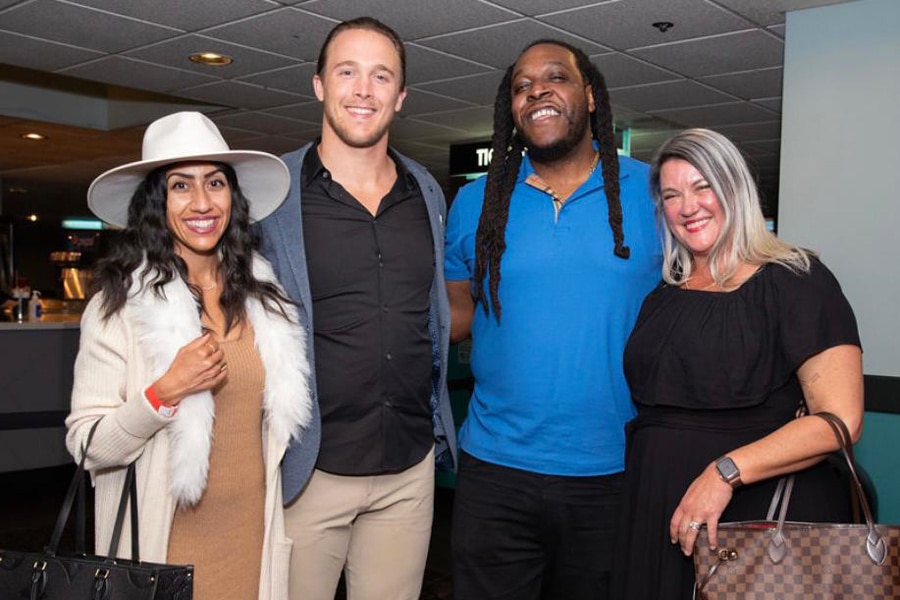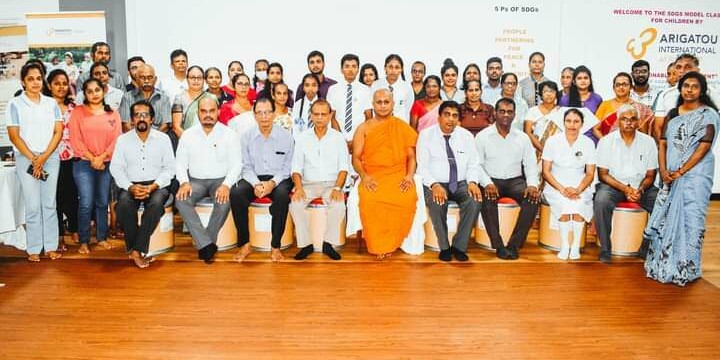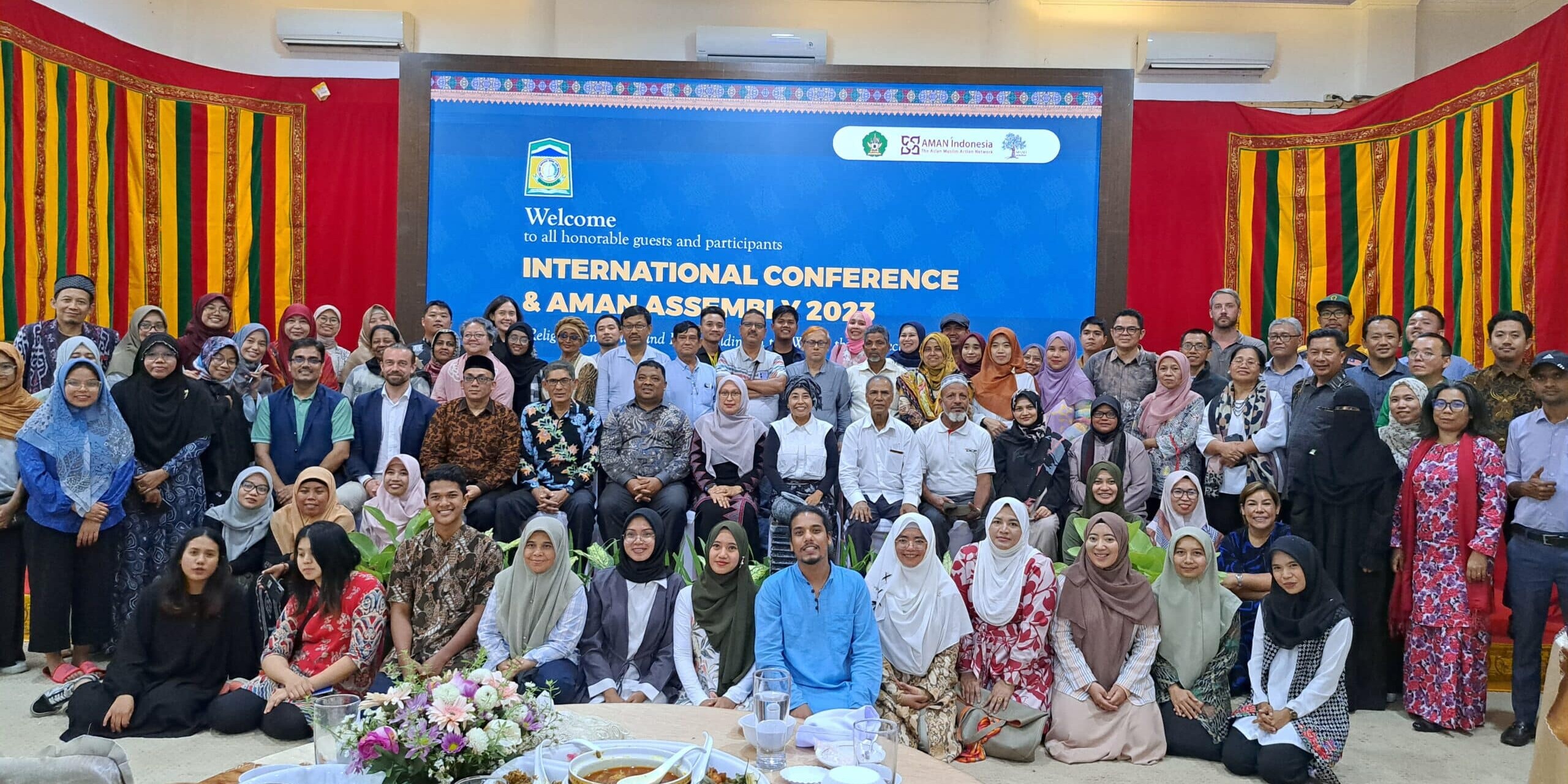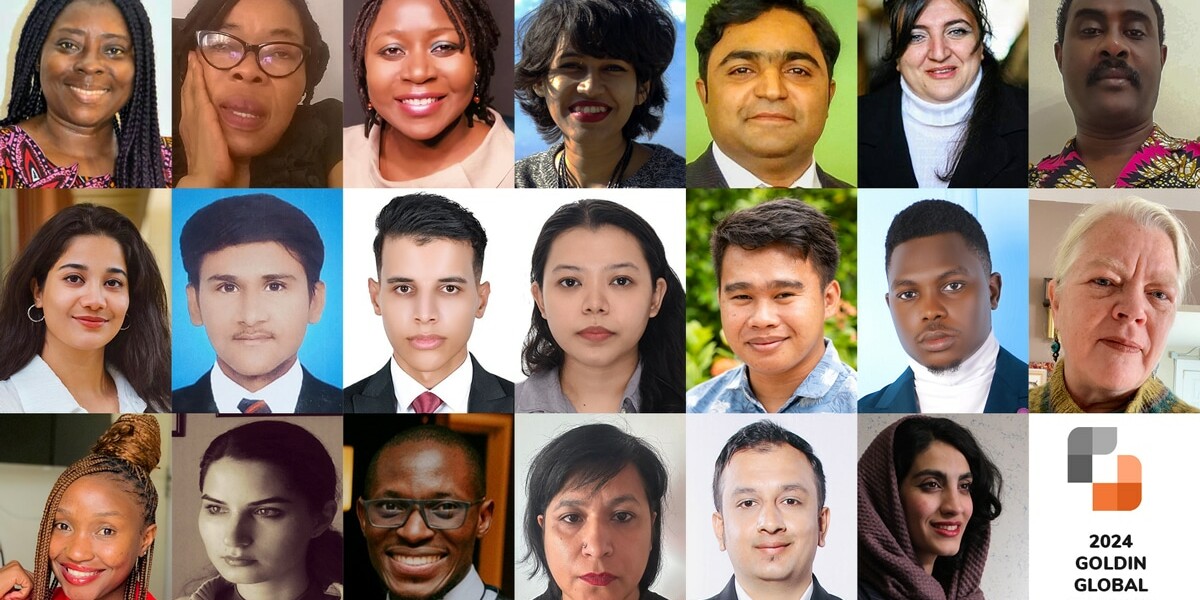By Cynthia Luvlee, Goldin Global Fellow, President and Chief Visionary Officer, SHYNE SD
Shyne is growing exponentially this year! We started 2022 with 8 survivors on the Shyne Survivor Business Network™ and we are delighted to announce that a few weeks ago we enrolled our 50th survivor entrepreneur and launched our new website www.shynesd.org!
When I began Shyne in 2018, following completion of the Goldin Global Fellows Program, our funding was so limited; I didn’t know we were going to be able to grow and accomplish the Shyne mission of supporting survivors of human trafficking through professional development services and encouraging a community of survivors towards economic independence and entrepreneurship.
Getting to this point has not been easy. Even with our great team and successful graduates, it took funders a long time to understand and counteract the stigma placed on survivors of human trafficking, and fully see the innovative power of believing in them as entrepreneurs.
The approaches I learned as a Goldin Global Fellow have been instrumental to me in my journey with Shyne, especially the commitment to center the voices, insights, talents and assets of those directly impacted by human trafficking. As we have grown, we are happy to share three principles that continue to guide our work and facilitate our growth.

1. Really Listen to the Community You Serve
At Shyne, 93% of those we serve were involved in commercial sexual exploitation and the other 7% identify as survivors of domestic violence and labor trafficking. We are working with individuals who have come out of the sex industry, who were often lured into the sex trade for financial reasons and became trapped in it.
To recognize the importance of listening, we asked the 50 survivors in our network to complete a strengths assessment to better understand their inherent strengths, which would have been learned by confronting vulnerabilities and traumas from their trafficking experience, an area where data is severely lacking.
In addition, we are working in conjunction with other programs to provide survivors with employment or education, depending on what path they chose and what they need to advance their career. Some of the top strengths of survivors we have identified are social intelligence, perseverance, creativity, and their ability to put themselves in somebody else’s shoes. They also have strong leadership skills and are risk takers, the kinds of things I look for in an entrepreneur.
Findings from the strengths assessment will be quantified by a data specialist outside of Shyne, to enrich the final report, and will be ready to be launched by the end of the year.
At Shyne, we focus on driving a solution to best support survivors because we truly believe in them. We consider they are fully capable of actualizing their dreams so that is where we start. That way we trust in building a brighter future for them, providing support, education, connections, and mentorship. From the survivors’ perspective, they deeply desire a sense of belonging, a sense of community, a sense of being uplifted or having their cup filled. Indeed, they really do know what they need, and they really are quite adept at creating the solution.

2. Focus on What’s Working
We have been a part of the “Tech2Empower Program” that helped us to broaden our reach with developing Salesforce tools for our new business coaches. In the past I had been the only one providing coaching and so with the new business coaches, we created a Salesforce form that helps us to qualify our key performance indicators. It has been helpful to see the investment that Shyne has made into each survivors’ start-up during the year; an estimated $5,000 of pro-bono coaching and training is provided to each entrepreneur during our nine-month signature incubator.
Shyne recently hired its first program director, Kayla Bright, who herself is a survivor of human trafficking; building a network of survivors who have their own business and collaborate together is a key piece of her vision. Bringing Kayla on board will help to achieve our mission of supporting survivors’ economic independence, and having a survivor as our first program director is just a dream come true. Kayla also collaborates at Survivors Ventures in Virginia (survivorventures.org). Survivor Ventures is an incredible agency who cover a portion of the cost of that employee so that we can leverage time we need to grow our business and fill a new full-time position. We have also continued to partner with Varonis Systems. They are corporate sponsors who provide us direct funds as well as facilitators for our “Incubator” workshops. That corporation has directly connected with survivors in a very impactful way, helping to shift the stigma of lack of trust in the impact community. We also partnered this year with Victoria Washington, a wealth coach who is now guiding us on how wealth is generated, a key component to healing for survivors of sex trafficking.
The Survivor Business Network™ collaborate and partner with each other with their time, expertise, and perhaps complimentary power partners. We help to facilitate their connections through a survivor led networking group so that they can learn one another’s businesses and be healthy referrals. Thereby, several innovative solutions were created in non-profits, for-profits, and social enterprises. Most inspiring is when Rachel Thomas, who is a nationally known survivor, called Shyne as she was looking to hire someone for her team and asked for a potential employee within our network who would be a good match. Of course, we were glad to recommend someone and make the connection! That individual got hired into a survivor-owned business. In essence, we envision a network of survivor owned businesses hiring each other, supporting each other’s sales of goods and services, and investing in one another through mentorship and coaching.
We continue to collaborate with leaders in the community. Survivor Ventures, which places the survivors into employment opportunities, Empower Her Network (empowerhernetwork.org), which provides wrap-around support through empowerment plans and The Avery Center, a survivor-led multi-faceted research and direct service agency. All have been incredible referral sources for us as a lot of their participants want to start their own businesses. Empower Her Network provides an 18-month empowerment plan so survivors can mitigate some housing instability issues like building a savings account, or getting help to finance certifications, or even support an educational initiative which someone might need to get their license as a business owner. We also partner with The Avery Center, founded by Megan Lundstrom, who also wrote The Survivor’s Guide to Money(theaverycenter.org). They all are leading the employment portion for survivors, meaning that they are eager to put together recommendations to employers on being inclusive with them and their application process, as well as assisting with preparing people to apply for jobs and careers within their desired career paths. Shyne sits at this interesting intersection with economic equity as its core mission.

3. Share the Table
I was invited to participate in the Uncharted Economic Inequity Co-Lab this year. It ran for 8 weeks and involved hearing lots of different approaches to economic equity and removing barriers to financial wealth. Shyne’s model is, I think, different and unique. As a result, we are building our own system as we invest directly into survivor’s solutions. We know we do not have the solution; everyone can provide a unique approach to work with individuals who have come out of the commercial sex trade and that can even vary from gender identity to wealth identity to racial identity. That way we are shifting the stigma and showing the world, and essentially investors, bankers and community members, how capable and resilient survivors are.

The Road Ahead
We are grateful to now be engaging with leading banking institutions that are in partnership with the United Nations Finances Against Slavery and Trafficking Survivor Inclusion Initiative, to talk about credit repair, survivor businesses and banking solutions to help create access to products and services. Thus, with this “incubator”, Shyne has brought formation of new business entities, and we are very well positioned to work with lending institutions and banks, not only to repair credit through business loans but to open business banking accounts and start to foster those relationships with financial institutions. It is a fact that survivors can sometimes feel misinformed and uneducated, even excluded from those products and services due to their trafficked experience. Perhaps they have suffered financial abuse from their trafficker, or they were placed in a position that resulted in poor credit. It means they become sort of the unbanked.
Therefore, Shyne is providing new pathways through business for survivors to be engaged in understanding budgets, repairing their credit, having a healthy relationship with a bank, being able to access money while working with financial institutions, and to begin preparing their savings account to be able to become owners of homes and cars.
Finally, last month we celebrated the formation of three new businesses through this “incubator”. We have twenty people enrolled currently in the program this year and I expect many of them to be pitching their businesses to investors in November 2022. In that sense, we really want to ask our community to support and help us with growing the Survivor Start Up Fund. We allocate 100% of those funds to support survivor start-ups.
SUPPORT SHYNE

Travis Rejman
Travis Rejman is the founding Executive Director of the Goldin Institute, a global non-profit based in Chicago that has inspired, equipped and connected grassroots leaders in over 50 countries over the last twenty years.



